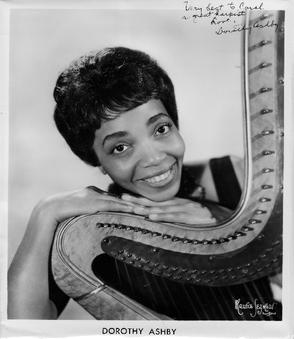
Dorothy Jeanne Thompson, better known as Dorothy Ashby, was an American jazz harpist, singer and composer. Hailed as one of the most "unjustly under loved jazz greats of the 1950s" and the "most accomplished modern jazz harpist," Ashby established the harp as an improvising jazz instrument, beyond earlier use as a novelty or background orchestral instrument, proving the harp could play bebop as adeptly as the instruments commonly associated with jazz, such as the saxophone or piano.

Mal/2 is an album by American jazz pianist Mal Waldron released on the Prestige label in November 1957. The CD reissue added two additional recordings from the same sessions originally released on The Dealers (1957) as bonus tracks.
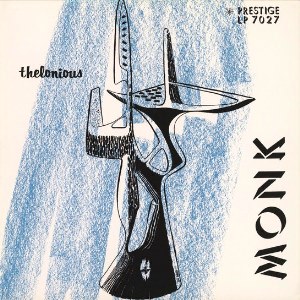
Thelonious Monk Trio is an album by American jazz pianist and composer Thelonious Monk. The album features his earliest recordings for Prestige Records, performing as a soloist with a rhythm section of bassist Gary Mapp, either Art Blakey or Max Roach on drums, and one track with Percy Heath replacing Mapp. It also contains the earliest recorded versions of the jazz standards "Blue Monk" and "Bemsha Swing".

Fancy Dancer is the fifth studio album by American jazz flautist Bobbi Humphrey, recorded in 1975 and released on the Blue Note label.

Tone Tantrum is an album by American jazz pianist Gene Harris recorded in 1977 and released on the Blue Note label.

2 Guitars is an album by guitarists Kenny Burrell and Jimmy Raney recorded in 1957 and released on the Prestige label.

Night Letter is an album by saxophonist Sonny Stitt recorded in 1969 and released on the Prestige label. The album features Stitt using the varitone, an electronic amplification device which altered the saxophone's sound.

Cool "Gator" is the second album led by saxophonist Willis Jackson featuring organist Jack McDuff and guitarist Bill Jennings which was recorded in 1959 and 1960 and released on the Prestige label.
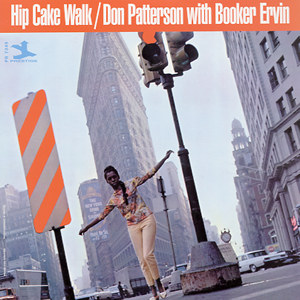
Hip Cake Walk is an album by organist Don Patterson recorded in 1964 and released on the Prestige label.

Movin' Right Along is an album by saxophonist Arnett Cobb recorded in 1960 for the Prestige label.

In a Minor Groove is an album by jazz harpist Dorothy Ashby recorded in 1958 and released on the New Jazz label.

The Jazz Harpist is the debut studio album by American jazz harpist Dorothy Ashby released in 1957 by the Regent label.
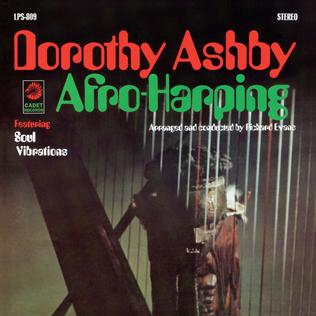
Afro-Harping is an album by jazz harpist Dorothy Ashby recorded in 1968 and released on the Cadet label.

The Rubaiyat of Dorothy Ashby is an album by jazz harpist Dorothy Ashby recorded in late 1969 and early 1970 and released on the Cadet label. On this album, Ashby plays the Japanese musical instrument, the koto, demonstrating her abilities to successfully integrate another instrument into jazz.

The Fantastic Jazz Harp of Dorothy Ashby is an album by jazz harpist Dorothy Ashby recorded in 1965 and released on the Atlantic label.
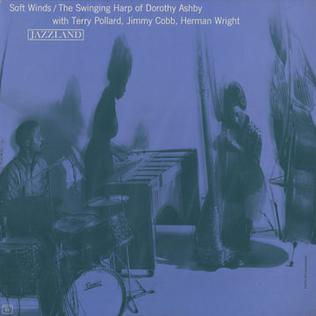
Soft Winds is an album by jazz harpist Dorothy Ashby recorded in 1961 and released on the Jazzland label. The album takes its name from Goodman's 1940 standard "Soft Winds" which features as the first track.

Dorothy Ashby is a self-titled album by jazz harpist Dorothy Ashby, released on the Argo label in 1962.

On the Sunny Side is an album by American jazz tenor saxophonist Paul Quinichette featuring tracks recorded in May 1957 and released on the Prestige label.

Dorothy's Harp is a studio album by jazz harpist Dorothy Ashby released in 1969 via the Cadet label. A few years after releasing Dorothy’s Harp, she started working with Stevie Wonder. The record includes two Brazilian-touched compositions: "Reza" and "Canto de Ossanha". The album was re-released as a CD in 2006.

Django/Misty is a studio album by jazz harpist Dorothy Ashby released via the Philips Records label in 1984. The album is named after two famous jazz compositions.




















